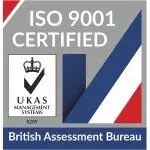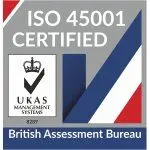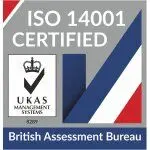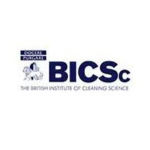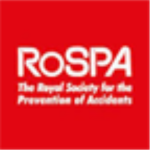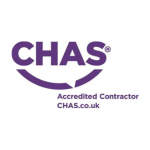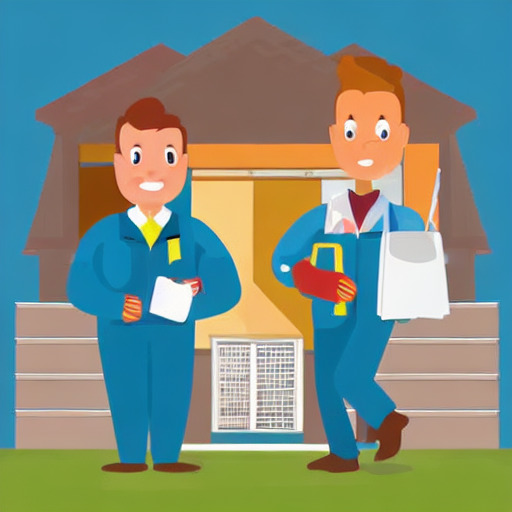
The Role of Caretakers in Facilities Management
Introduction
Definition of Facilities Management
Facilities management refers to the coordination and maintenance of the physical assets and infrastructure of an organization. It involves the management of various aspects such as buildings, equipment, utilities, and services to ensure the smooth functioning of the facility. Caretakers play a crucial role in facilities management as they are responsible for the day-to-day operations and maintenance of the facility. They ensure that the facility is clean, secure, and well-maintained, and they also handle repairs, inspections, and other necessary tasks. Caretakers are essential in ensuring the safety, comfort, and functionality of the facility for its occupants and visitors.
Importance of Facilities Management
Facilities management plays a crucial role in ensuring the smooth functioning of organizations. It involves the coordination and maintenance of various aspects of a facility, including the physical infrastructure, equipment, and services. One key aspect of facilities management is the role of caretakers. Caretakers are responsible for the day-to-day upkeep and maintenance of the facility, ensuring that it remains clean, safe, and well-maintained. They play a vital role in creating a conducive environment for employees, visitors, and residents. Without the diligent work of caretakers, facilities management would be incomplete, and the overall functioning of organizations would be compromised.
Role of Caretakers in Facilities Management
Caretakers play a crucial role in facilities management by ensuring the smooth operation and maintenance of various building systems and infrastructure. They are responsible for conducting regular inspections, identifying and addressing any issues or repairs needed, and coordinating with external service providers when necessary. Caretakers also play a vital role in ensuring the safety and security of the facility, including monitoring access control systems and responding to emergencies. Their attention to detail and proactive approach contribute to the overall efficiency and effectiveness of facilities management, creating a comfortable and well-maintained environment for occupants and visitors.
Responsibilities of Caretakers
Maintenance and Repairs
Maintenance and repairs are essential aspects of facilities management. Caretakers play a crucial role in ensuring that buildings and equipment are well-maintained and functioning properly. They are responsible for identifying and addressing any maintenance issues, such as plumbing or electrical problems, and coordinating repairs with external service providers. By promptly addressing maintenance and repair needs, caretakers help to create a safe and comfortable environment for residents or occupants. Their attention to detail and proactive approach contribute to the overall efficiency and effectiveness of facilities management.
Cleaning and Sanitation
Cleaning and sanitation play a crucial role in facilities management. Maintaining a clean and hygienic environment is essential for the well-being and safety of both employees and visitors. Caretakers are responsible for ensuring that all areas are regularly cleaned, including common spaces, restrooms, and workstations. They follow strict protocols and use appropriate cleaning products to eliminate germs, bacteria, and viruses. By prioritizing cleaning and sanitation, caretakers contribute to the overall health and productivity of the facility, creating a pleasant and welcoming atmosphere for everyone.
Security and Safety
Security and safety are paramount in facilities management. Caretakers play a vital role in ensuring the security and safety of the facility and its occupants. They are responsible for implementing and monitoring security measures, such as surveillance systems, access control, and emergency response protocols. Caretakers also conduct regular inspections to identify potential safety hazards and take appropriate actions to mitigate risks. By diligently carrying out their duties, caretakers contribute to creating a secure and safe environment for everyone in the facility.
Skills and Qualifications
Technical Skills
Technical skills are essential for caretakers in facilities management. These skills enable caretakers to efficiently handle various maintenance tasks and repairs. A strong understanding of electrical systems, plumbing, heating and cooling systems, and general building maintenance is crucial. Additionally, caretakers should be familiar with using various tools and equipment to carry out their duties effectively. By possessing the necessary technical skills, caretakers can ensure the smooth operation and functionality of the facilities they manage.
Communication Skills
Effective communication skills are essential for caretakers in facilities management. Caretakers need to be able to clearly and accurately convey information to both staff and residents. This includes listening actively, speaking clearly, and using appropriate body language. Good communication skills help caretakers build positive relationships with others, resolve conflicts, and ensure that tasks are completed efficiently. Additionally, caretakers with strong communication skills can effectively communicate with different individuals, including those with diverse backgrounds and needs. Overall, communication skills are crucial for caretakers to effectively carry out their responsibilities in facilities management.
Problem-Solving Skills
Problem-solving skills are essential for caretakers in facilities management. In this role, caretakers encounter various challenges and issues on a daily basis, ranging from equipment malfunctions to maintenance emergencies. Having strong problem-solving skills allows caretakers to quickly identify and address these problems, ensuring that the facility operates smoothly. Caretakers must be able to think critically, analyze situations, and come up with effective solutions in a timely manner. Additionally, they must be adaptable and resourceful, as each problem may require a unique approach. By utilizing their problem-solving skills, caretakers contribute to the overall efficiency and effectiveness of the facility management team.
Challenges Faced by Caretakers
Workload Management
Workload management is a crucial aspect of facilities management, and caretakers play a vital role in ensuring its effectiveness. They are responsible for overseeing the day-to-day tasks and activities within a facility, ensuring that all work is completed efficiently and on time. Caretakers carefully allocate resources, such as manpower and equipment, to ensure that the workload is distributed evenly and that all tasks are prioritized appropriately. They also monitor the progress of work, making adjustments as needed to ensure that deadlines are met and quality standards are maintained. By effectively managing the workload, caretakers contribute to the smooth operation of facilities and create a conducive environment for both staff and occupants.
Dealing with Emergencies
When it comes to dealing with emergencies in facilities management, caretakers play a crucial role. They are responsible for ensuring the safety and well-being of the occupants and the facility itself during unexpected events such as fires, natural disasters, or medical emergencies. Caretakers are trained to quickly assess the situation, implement emergency protocols, and coordinate with relevant authorities and emergency response teams. Their quick thinking, problem-solving skills, and ability to remain calm under pressure are essential in effectively managing and resolving emergencies. Additionally, caretakers are also responsible for conducting regular emergency drills, maintaining emergency equipment, and providing training to other staff members. Their proactive approach and preparedness contribute to creating a safe and secure environment for everyone in the facility.
Handling Difficult Tenants
Handling difficult tenants is a crucial aspect of facilities management. Caretakers play a vital role in addressing the challenges that arise when dealing with tenants who are difficult to handle. These tenants may exhibit disruptive behavior, refuse to comply with rules and regulations, or create conflicts with other tenants. In such situations, caretakers need to employ effective communication and conflict resolution skills to de-escalate tensions and find amicable solutions. Additionally, they must ensure the safety and well-being of all tenants while maintaining a positive living environment. By effectively handling difficult tenants, caretakers contribute to the overall success of facilities management and enhance the satisfaction and experience of all residents.
Training and Development
On-the-Job Training
On-the-Job Training is an essential aspect of facilities management, particularly for caretakers. It provides hands-on experience and practical knowledge that cannot be gained through theoretical learning alone. During on-the-job training, caretakers are able to familiarize themselves with the specific tasks and responsibilities they will encounter in their role. They learn how to operate and maintain equipment, handle emergency situations, and ensure the safety and comfort of the facility’s occupants. This training also allows caretakers to develop important skills such as problem-solving, communication, and teamwork, which are crucial for effectively managing facilities. Overall, on-the-job training plays a vital role in preparing caretakers for their responsibilities and ensuring the smooth functioning of facilities.
Continuing Education
Continuing education is essential for caretakers in facilities management to stay updated with the latest industry trends and best practices. It allows them to enhance their knowledge and skills, enabling them to provide better care and support to the residents or occupants of the facility. By participating in workshops, seminars, and training programs, caretakers can learn about new technologies, regulations, and techniques that can improve the efficiency and effectiveness of their work. Additionally, continuing education helps caretakers stay motivated and engaged in their profession, ensuring that they are equipped to handle any challenges that may arise in their role.
Professional Certifications
Professional certifications play a crucial role in the field of facilities management. These certifications validate the knowledge and expertise of caretakers, ensuring that they possess the necessary skills to effectively manage and maintain facilities. By obtaining professional certifications, caretakers demonstrate their commitment to professional growth and development, as well as their dedication to providing high-quality services. Additionally, certifications provide caretakers with a competitive edge in the job market, as employers often prioritize candidates with recognized certifications. Overall, professional certifications enhance the professionalism and credibility of caretakers in the field of facilities management.
Conclusion
Importance of Caretakers in Facilities Management
Caretakers play a crucial role in facilities management as they are responsible for the maintenance and upkeep of the facility. They ensure that the premises are clean, safe, and well-maintained, creating a conducive environment for both employees and visitors. Caretakers also handle minor repairs and maintenance tasks, such as fixing leaky faucets and replacing light bulbs. Their presence is essential in preventing potential hazards and addressing any issues promptly. Additionally, caretakers provide assistance and support to other staff members, ensuring the smooth operation of the facility. Overall, the importance of caretakers in facilities management cannot be overstated, as they contribute significantly to the overall functionality and well-being of the facility.
Future Trends in Facilities Management
Future trends in facilities management are constantly evolving and shaping the industry. With advancements in technology, facilities managers can expect to see an increased reliance on automation and smart systems. This includes the use of artificial intelligence and Internet of Things (IoT) devices to monitor and control various aspects of facility operations. Additionally, sustainability and energy efficiency will continue to be key considerations in facilities management, with a growing emphasis on green building practices and renewable energy sources. As the demand for sustainable and eco-friendly facilities grows, facilities managers will need to stay informed about the latest trends and best practices in order to effectively manage and maintain their facilities.
Recommendations for Facilities Management
In order to improve facilities management practices, it is recommended that caretakers play a crucial role. Firstly, caretakers should be provided with proper training and education to enhance their knowledge and skills in managing facility operations. This will enable them to effectively identify and address maintenance issues, ensure proper upkeep of the premises, and provide a safe and comfortable environment for occupants. Additionally, caretakers should be encouraged to actively engage with facility users and solicit feedback to better understand their needs and preferences. Regular communication and collaboration with other stakeholders, such as maintenance staff, administrators, and tenants, is also essential for effective facilities management. By implementing these recommendations, facilities can optimize their operations and provide a high-quality experience for all stakeholders.
Next Steps
As caretakers play a crucial role in facilities management, it is essential to stay updated with the latest industry trends and best practices. By continuously enhancing your knowledge and skills, you can ensure the smooth operation and maintenance of facilities under your care. To take your caretaking abilities to the next level, visit https://premiserv.co.uk. This comprehensive platform offers a wide range of resources, training programs, and expert advice tailored specifically for caretakers in the facilities management industry. Don’t miss out on the opportunity to enhance your expertise and make a significant impact in your role as a caretaker. Visit https://premiserv.co.uk today and unlock your full potential in facilities management.

